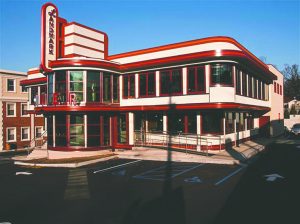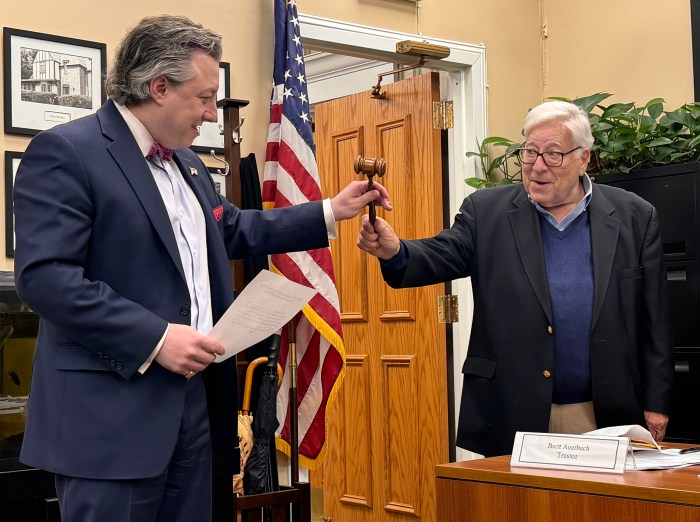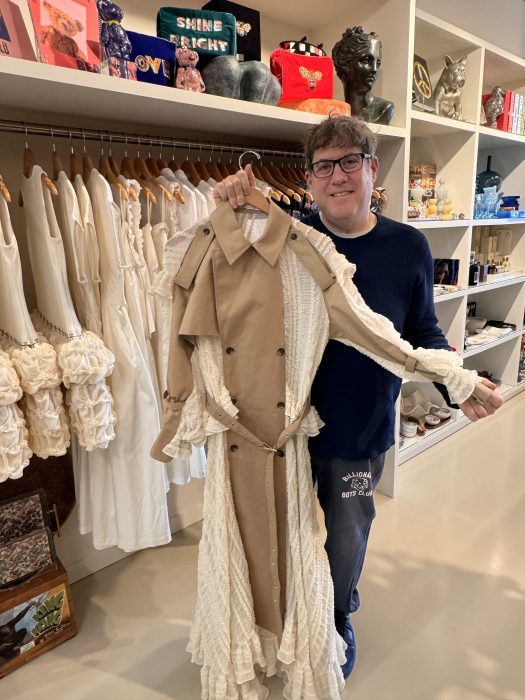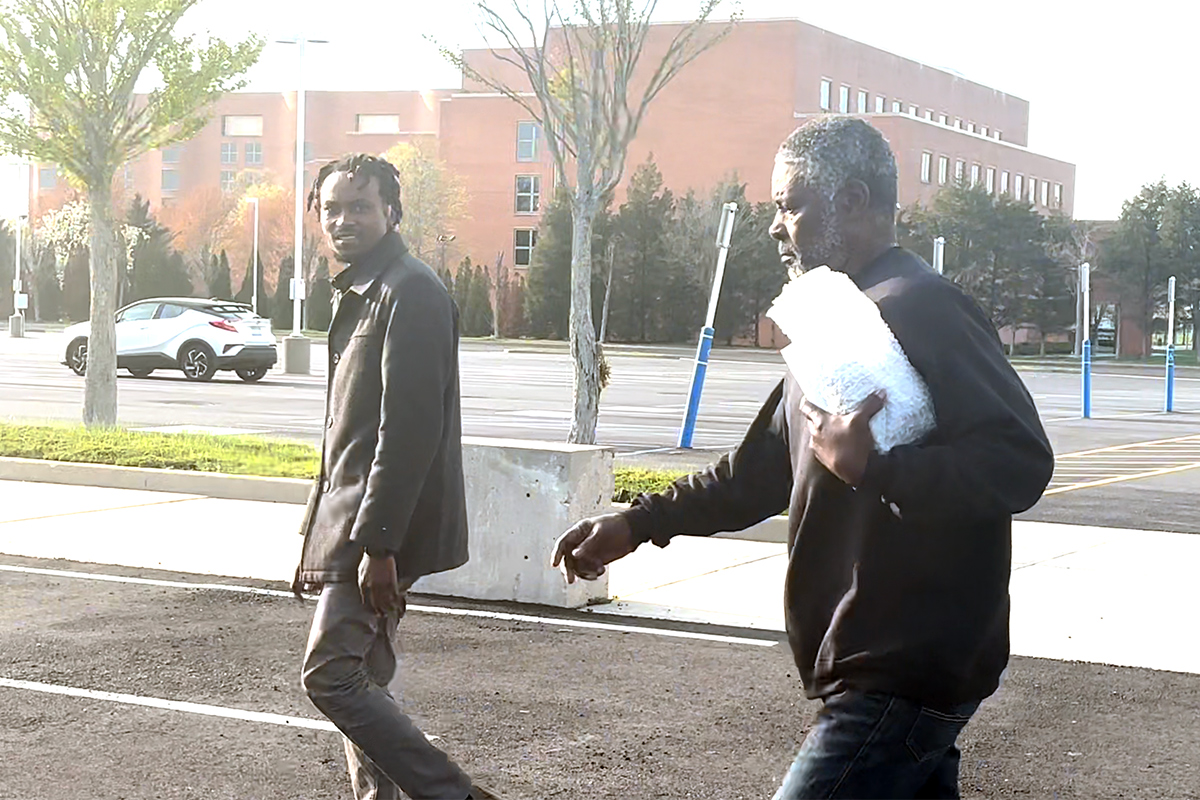When the coronavirus hit in mid-March, Alex Sieligowski knew that he would have to implement tremendous changes in order to keep Gino’s Parlor of Roslyn afloat. The stakes were high – he and his wife were expecting their second child by the end of the month, his wife was going to be out of work, and now, Sieligowski feared that he was going to lose Gino’s, his first-ever business. Like every other local restaurant owner during this time, Sieligowski faced a grueling question: Would it be possible for the business to survive – let alone thrive – in a COVID-19 world?
For Sieligowski and so many other Roslyn restaurant owners, survival has proven nearly insurmountable. Requiring creativity, strength, and grit, these business owners have needed to completely reinvent the commercial dining experience. For some restauranteers, failure still remains a serious fear. For others, business is only just starting to improve after months of major losses. For all, the journey is ongoing – marked by constant challenge and uncertainty, but also by an unwavering desire to tackle whatever lies ahead.
When the pandemic struck, one thing became clear: in order for restaurants to remain open, safety and cleanliness would have to be prioritized like never before. This demand evoked a variety of responses from restaurant owners. Jimmy Zanfardino, owner of Delicacies Gourmet of Roslyn, sent away for disposable temperature strips in the middle of March. Boxes of test strips that used to be sold at $30 were now being sold for upwards of $100 – a cost that Zanfardino decided to absorb out-of-pocket in order to ensure that he could check his employees’ temperatures before they came into work each morning.
Sieligowski, too, began testing the temperatures of his employees in March and also started offering curbside pickup and contactless delivery. He also decided not to let customers into Gino’s at all when the pandemic first hit – instead, he set up a designated take-out station designed exclusively for virtually contactless exchanges.
“It was a lot, but we had to do it,” Sieligowski said. “I knew that in order to make things work, I had to make Gino’s the safest place for customers to get food from and for my employees to work at.”
Thyme owners Nancy Serna and Khal Abousaid also did everything that they could to mitigate exposure and risk for their employees, even when they were outside of work. At the start of the pandemic, they provided their employees with boxes of meat, dairy, fresh fruits, and other staple food items on an ongoing basis so that they wouldn’t need to venture into grocery stores themselves. Employees were also driven to work as needed in order to ensure that they didn’t have to use public transportation. Beyond that, if staff members were in need of any personal products such as drug store prescriptions, Serna and Abousaid personally made sure that they were able to have these items delivered directly to them. Ultimately, out of Thyme’s 25-person team, not a single staff member has gotten sick yet.
“We made a pact,” Serna said. “We come to work, we keep safe, and we protect each other. I’m so grateful that we were able to work like this, and I’ve implored my employees to continue functioning in this way as we’ve transitioned to dining in.”
Still, for most restaurants, addressing issues of cleanliness and safety was only a first step within a much larger set of demands created by the pandemic. Another crucial question was whether the demand for restaurant services would even continue to exist in this new landscape. And if strong demand did not persist, would it be possible for food businesses to bring new life to their stunted operations?
This concern rung loudly at Roslyn’s YOLO Yogurt Shop & Desserteria, which had been designed to function as a self-serve facility from day one. The dessert parlor was built around the natural flow of customers entering the shop and helping themselves to frozen yogurt and other desserts. Frank Briggs and his business partners now faced a challenge – could they continue to satisfy their customers in coronavirus times, in which the self-serve model has become unworkable?
The group had to change their business model entirely, closing their lobby and taking all orders from an outdoor order window. Now, YOLO’s staff members, who had been trained with the self-serve model in mind, needed to take detailed orders from customers, document what they wanted, and fill each order to the customer’s exact request. Essentially, workers needed to adapt overnight.
“There was no grace period,” Briggs said. “Pandemic, locusts, plague, the Roslyn client expects what they want when they want it, without exception. We have been blessed to remain open since the start.”

Not all local restaurants, though, were able to successfully adapt to the new demands created by the pandemic. Back in March, following several weeks of slow business and few prospects for improvement, Lou Tiglias decided to shut down Roslyn’s Landmark Diner. At the time, Tiglias thought that he would be back in business within the next month. Yet in the months that followed the Landmark Diner’s closure, the coronavirus pandemic reached unforeseeable heights. Fear spread as deaths surged throughout the nation, and soon, the prospect of quickly reopening became little more than an elusive dream for Tiglias.
For three long months, Tiglias saw scant opportunity to re-open. He was fearful for his workers’ health and safety, and few of his employees even wanted to return to work – for a while, they were scared and, in some cases, earning more from unemployment compensation than they would have earned at the diner.
In late June, Tiglias and one-third of his original staff returned to work – still, due to customer apprehension and coronavirus concerns, by early August, the diner had only reached about one-third of its usual business capacity. With customers still reluctant to come in, Tiglias continues to fear for the diner’s survival.
“Every week it’s getting a little bit better,” Tiglias said. “But if we don’t reach at least 50 or 60 percent capacity, we’re probably going to have to shut down again.”
Roslyn’s La Bottega also shut down in mid-March. It was a Friday night when Giuseppe Ruta decided to temporarily close the Roslyn restaurant, as well as three of his other corporate restaurant locations. With his three children living in Europe, Ruta was sharply aware of the scathing potential of what was, for many Americans at the time, a new and unfamiliar virus. He began to grow restless as he watched the virus begin to ripple throughout the country. “That’s it! I am closing everything,” he remembers telling his wife, Marisa.
Over five months later, Ruta is now reopening La Bottega Roslyn, with this past Tuesday marking their first day back in business. Ruta is ready for the journey ahead, but fear remains. Despite the fact that strict social distancing measures have been put in place at the restaurant, Ruta continues to worry for the safety and health of his staff. He fears of failure – what if Roslyn customers don’t come back? Perhaps most profoundly, he fears that if he can’t make it financially, Roslyn La Bottega might have to close for good.
Still, when he speaks of the future, Ruta remains cautiously optimistic. He notes that he profoundly hopes to be able to keep La Bottega open for years to come, but he also indicates that his deepest desires are only twofold. First, he wishes for professionals to quickly develop a safe, free COVID-19 vaccine that can be shared with everyone in this “beautiful world.” Secondly, he deeply hopes to be able to start visiting his children in Europe more often.
“COVID-19 has changed every one of us forever,” Ruta reflected. “Like it or not, things will not be the same for a very long time after this pandemic. But in a way, I am ‘happy’ that we were forced to slow things down a little. We take more time for our family now, for our friends, and for our children. It made us realize how important the small things are.”
Ruta’s words offer a freshening and uplifting perspective on what is generally a bleak moment in time. And his story, as well as the stories of so many other restaurant owners across Roslyn, serves as an important reminder of the strength and dedication of our local business owners. As we continue to appreciate the “small things” in our lives, we should also celebrate the not-so-small things that Roslyn business owners and workers have been doing for us each day. A bite into a slice of Gino’s pizza can be taken as a moment to appreciate Sieligowski’s commitment to protecting his employees throughout the course of the pandemic. A crunch into one of La Bottega’s famous avocado salads can be treated as a celebration of Ruta’s resolve and eagerness to embrace all that lies ahead. A late night order of burgers and fries from the Landmark Diner may be a small way to say “thank you and good luck” to Tiglias as he continues to fight for the life of his diner, a true Roslyn landmark. Through everything, our local restaurant owners have been here for us, and in small ways, we can be there for them, too.
































